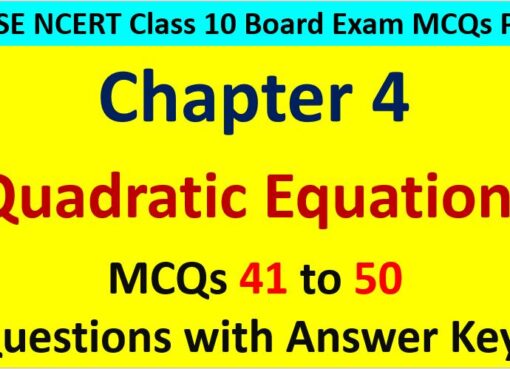Hi Students, Welcome to Amans Maths Blogs (AMB). As you have read my post How To Find Total Number of Factors of Any Number? So, you know about how to find total numbers of any given number. In those factors some of them are EVEN factors and others are ODD factors. In this article, you will learn other FACTOR FORMULA | How To Find Number of ODD Factors of Any Number?. Factor formula is an important formula in number system concepts.
Factor Formula
To understand what is going to be find, lets start with an example.
| Formula for Total Factors | Formula for Even Factors |
| Formula for Odd Factors | Formula for Sum of All Factors |
| Formula for Product of All Factors | Factors & Multiples |
Suppose you are given a number 1250.
If N is the number whose prime factorization is
N = αa × βb × γc × δd × …, where α, β, γ, δ, … are prime numbers and a, b, c, d, … positive integers.
Then the total number of factors of N is (a + 1)(b + 1)(c + 1)(d + 1)….
Here, you are given N = 1250 (an even number).
Then, its prime factorization is 1250 = 2 × 54. …………………………………………(1)
Thus, Total number of factors of 1250 is (1 + 1)(4 + 1) = 10
Now, the factors of 1250 are 1, 2, 5, 10, 25, 50, 125, 250, 625, 1250.
How these factors are calculated, look below the pattern:
Since the prime factorization of 1250 is 2 × 54 = 2 × 5 × 5 × 5 × 5.
1 × 1 = 1 (odd)
1 × 2 = 2 (even)
1 × 5 = 5 (odd)
2 × 5 = 10 (even)
5 × 5 = 25 (odd)
2 × 5 × 5 = 50 (even)
5 × 5 × 5 = 125 (odd)
2 × 5 × 5 × 5 = 250 (even)
5 × 5 × 5 × 5 = 625 (odd)
2 × 5 × 5 × 5 × 5 = 1250 (even)
In these factors, you found that 1, 5, 25, 125, 625 are the ODD factors of 1250. There are only 5 odd factors of 1250.
These ODD factors are obtained if the even prime factor 2 is excluded in the product, otherwise you will get an even factor.
Let another N = 135 (an odd number).
Then, its prime factorization is 135 = 33 × 5. ……………………………………..(2)
Thus, Total number of factors of 135 is (3 + 1)(1 + 1) = 4 × 2 = 8.
Now, the factors of 135 are 1, 3, 5, 9,15, 27, 45, 135.
How these factors are calculated, look below the pattern:
Since the prime factorization of 135 is 33 × 5 = 3 × 3 × 3 × 5.
1 × 1 = 1 (odd)
1 × 3 = 3 (odd)
1 × 5 = 5 (odd)
3 × 3 = 9 (odd)
3 × 5 = 15 (odd)
3 × 3 × 3 = 27 (odd)
3 × 3 × 5 = 45 (odd)
3 × 3 × 3 × 5 = 135 (odd)
In these factors, you found that 1, 3, 5, 9, 15, 27, 45, 135, all are the ODD factors of 135. There are only 8 odd factors of 135.
In the prime factorization of 135, there is NO even prime factor 2. So you get all factors are ODD.
Since 1250 and 135 is not a large number, so you can find odd factors of 1250 and 135 easily by listing all the factors.
BUT, if you are given a large number whose the number is factors is large, then you find that it is very difficult to find number of odd factors of the number.
Therefore, here is given factor formula, using that you can find the number of odd factors of the number, without listing all the factors.
From these two above example, you can conclude that if an odd number has all ODD factors whereas an even number can have odd and even factors. How, you can say?
Observe the prime factorizations of 1250 and 135.
Since the prime factorization of 1250 contains the prime factor 2, so 1250 has even factor and odd factor both. To find an odd factor, you need to exclude the even prime factor 2.
whereas, the prime factorization of 135 does not contain the prime factor 2, so 135 has no even factors, all factors are odd.
Thus, the number of odd factors depends on the prime factor 2 of prime factorization of any number.
It means only an even number can have an even and an odd factors whereas an odd number has only odd factors.
Now, understand the factor formula below to find the number of odd factors of any number.
How to Find Total Number of ODD Factors of a Number
Let N is the number whose the prime factorization is N = αa × βb × γc × δd × …, where α < β < γ < δ < … are prime numbers and a, b, c, d, … positive integers.
(b + 1)(c + 1)(d + 1)…, if α = 2 (N is an EVEN number)
(a + 1)(b + 1)(c + 1)(d + 1)…, if α ≠ 2 (N is an ODD number)
Ques 1 : Find the total number of odd factors of 120.
Solution : Prime Factorization of 120 is 120 = 23 × 31 × 51.
Thus, Total number of odd factors of 120 is (1 + 1)(1 + 1) = 2 × 2 = 4.
Ques 2 : Find the total number of odd factors of 84.
Solution : Prime Factorization of 84 is 84 = 22 × 31 × 71.
Thus, Total number of odd factors of 84 is (1 + 1)(1 + 1) = 2 × 2 = 4.
Ques 3 : What is the number of odd factors of the number 3600?
Solution : Prime Factorization of 3600 is 3600 = 24 × 32 × 52.
Thus, Total number of odd factors of 3600 is (2 + 1)(2 + 1) = 3 × 3 = 9.
Ques 4 : What is the number of odd factors of the number 504?
Solution : Prime Factorization of 504 is 504 = 23 × 32 × 71.
Thus, Total number of odd factors of 504 is (2 + 1)(1 + 1) = 3 × 2 = 6.
Ques 5 : Find the total number of odd factors of 180.
Solution : Prime Factorization of 180 is 180 = 22 × 32 × 51.
Thus, Total number of odd factors of 180 is (2 + 1)(1 + 1) = 3 × 2 = 6.
Ques 6 : What is the number of odd factors of 6480?
Solution : Prime Factorization of 6480 is 6480 = 24 x 34 x 51.
Thus, Total number of odd factors of 6480 is (4 + 1)(1 + 1) = 5 × 2 = 10.
Ques 7 : What is the number of odd factors of 420?
Solution : Prime Factorization of 420 is 420 = 22 x 31 x 51 x 71.
Thus, Total number of odd factors of 420 is (1 + 1)(1 + 1)(1 + 1) = 2 × 2 × 2 = 8.
Factors and Multiples Table
| Formula for Total Factors | Formula for Even Factors |
| Formula for Odd Factors | Formula for Sum of All Factors |
| Formula for Product of All Factors | Factors & Multiples |


